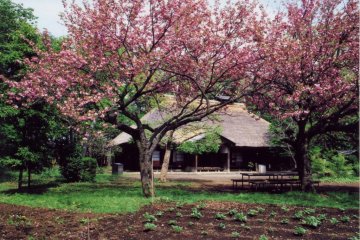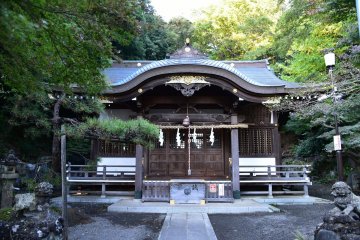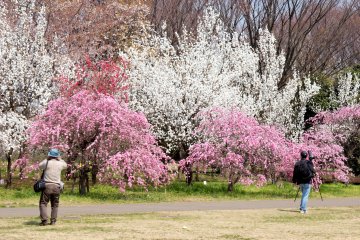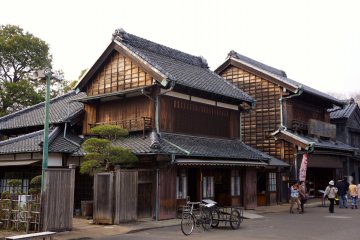Overview
Residential in nature, Koganei City happens to be the geographical centre of Tokyo. Dotted with a plethora of local parks, this Tokyo bedroom community still finds time to offer up Nukui Shrine, very much on the Tokyo's best kept local secrets list, Koganei Park, one of the city's most popular cherry blossom viewing spots and the absolutely incredible Edo-Tokyo Open Air Architectural Museum.
Nukui Shrine
Said to have been built at the end of the 16th century, Nukui Shrine is one of Tokyo's hidden gems. Absolutely charming with its traditional pond, bridges, and carp fish the shrine is surrounded by a wooded grove featuring an ancient pine tree and beautiful spring water.
Fifteen minutes from the South Exit of Kokubunji Station on the JR Chuo East Line.
Ten Shrine
Enshrining, Sugawara no Michizane, a famous scholar of the 9th century who became the deity for learning, Ten Shrine was established in the mid-18th century. Unlikely to be drawing tourists any time soon, this truly local shrine is simple, honest and above all, silent.
Two minutes from Shin-Koganei Station on the Seibu Tamagawa Line.
Yokuonkan Park
One of the numerous local parks dotting the city, Yokuonkan Park features a lovely little pond located within a wooded setting. With its natural flora, and traditional komorebi light filtering through the trees, the park is a nice place to experience the changing of the seasons in a local setting.
Nineteen minutes from Higashi-Koganei Station on the JR Chuo East Line.
Koganei Park
One Tokyo's more popular parks, the 2,000 cherry blossom trees of Koganei Park are a natural hit in spring while the children's playground facilities, accessible year round, are some of the city's most enjoyable. Of note is the steam locomotive engine display and the park's weekend flea markets.
Twelve minutes from the South Exit of Hana-Koganei Station on the Seibu-Shinjuku Line.
Edo-Tokyo Open Air Architectural Museum
A branch museum of Ryogoku's famous Edo-Tokyo Museum, the Edo-Tokyo Open Air Museum is an incredible exhibit of Tokyo's architectural history. Featuring farmhouses, public baths and even political manors, these relocated buildings date back to the Edo and Meiji periods.
Five minutes from Koganeikoen Nishiguchi bus stop on the Seibu Bus from the South Exit of Hanakoganei Station on the Seibu Shinjuku Line.









